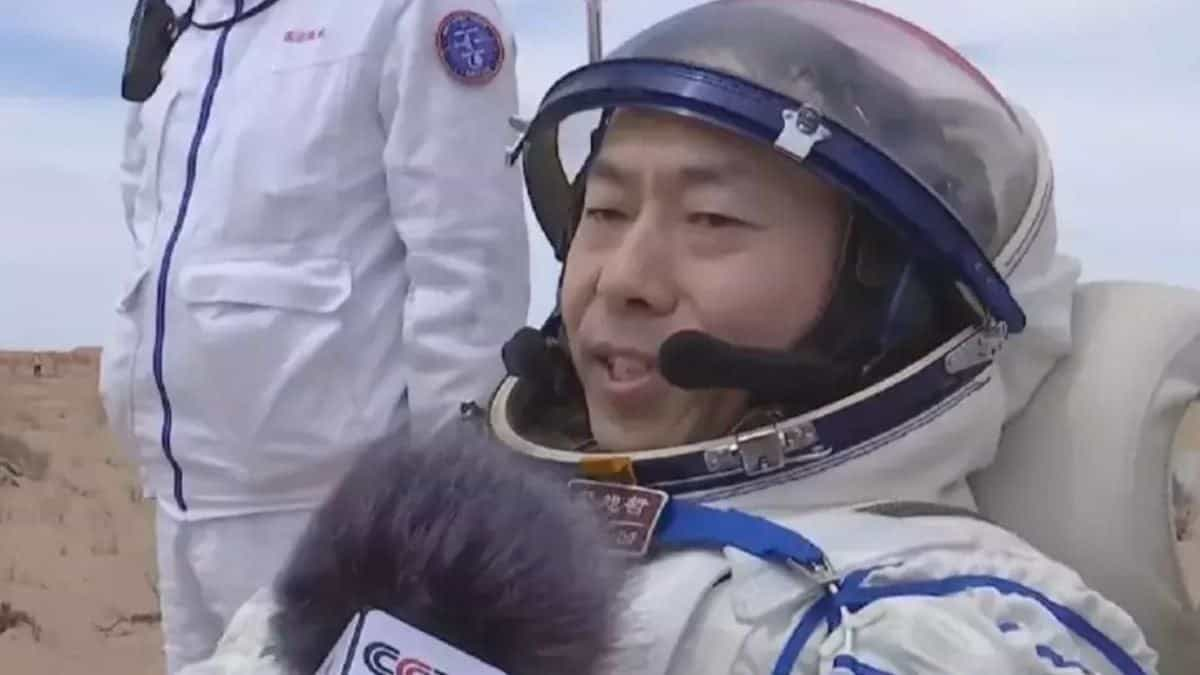Show table of content Hide table of content
Chinese astronaut Cai Xuzhe recently returned to Earth with a profoundly altered perspective after spending six months aboard China’s Tiangong space station. This transformation, experienced by many space travelers, has reshaped his view of our planet and humanity’s role in protecting it.
The transformative experience of observing Earth from space
On May 1, 2025, Cai Xuzhe, along with fellow astronauts Song Lingdong and Wang Haoze, completed their extended mission aboard the Tiangong (“Heavenly Palace”) space station. Their landing in Inner Mongolia marked the successful conclusion of the Shenzhou-19 mission, which had been delayed by a day due to unfavorable weather conditions.
During his time in orbit, Commander Cai experienced what scientists call the “overview effect” – a cognitive shift reported by astronauts who observe Earth from space. This psychological phenomenon often triggers a deep sense of connection to our planet and a heightened awareness of its fragility.
News This TikToker buys a used van and realizes it has a hidden surveillance device.
“We contemplated our beautiful blue planet countless times from orbit,” Cai shared with Chinese state television after landing. “Earth is humanity’s common home, and we must protect it together.” This revelation mirrors experiences reported by numerous astronauts throughout space exploration history, including those who have witnessed dramatic environmental changes like ice shelf collapses affecting marine ecosystems.
The 48-year-old commander’s words reflect a profound ecological awakening that often accompanies the overview effect. Many space travelers return with renewed commitment to environmental causes and a deeper understanding of Earth’s interconnected systems.
China’s growing presence in orbital exploration
The Shenzhou-19 mission represents another significant milestone in China’s ambitious space program. The three astronauts spent half a year conducting scientific experiments and maintaining the Tiangong space station, which serves as China’s permanent outpost in low Earth orbit.
Wang Haoze, at 35, made history as only the third Chinese woman to venture into space. “It feels good to be back home,” she told CCTV after the landing. Her participation highlights China’s expanding role in space exploration and its efforts to diversify its astronaut corps.
China’s space program has accelerated dramatically in recent years, with achievements including lunar sample returns and the establishment of Tiangong. The station allows Chinese astronauts to conduct long-duration missions, similar to those aboard the International Space Station, providing unique research opportunities that could reveal previously unknown phenomena, much like deep ocean exploration has uncovered surprising new species.
State media reported that all three astronauts returned in good health, demonstrating China’s growing capability to safely manage extended human missions in the challenging environment of space.
The profound impact of the overview effect
The overview effect that changed Cai Xuzhe’s perspective has been documented since the early days of human spaceflight. This powerful psychological shift occurs when astronauts observe Earth from orbit or beyond, suddenly perceiving our planet as a fragile oasis in the vastness of space.
NASA astronaut Ron Garan articulated this sensation eloquently: “One thing I understood during my time in space is that we don’t come from Earth, we are of Earth. Furthermore, we aren’t just in the universe, we are the universe.” This profound realization often leads to a dissolving of artificial boundaries and a recognition of our shared destiny.
News Bat wings after 50? Here’s the most effective exercise, according to a coach.
According to documentation from the Canadian government, “After their mission, most astronauts wish to protect Earth more than ever… When they return, their mindset has changed. Some invest in environmental protection, others in artistic creative activities.” This reframing of priorities resembles the excitement scientists feel when rediscovering species once thought extinct, reminding us of our planet’s resilience and fragility.
The experience often gives astronauts a unique platform to advocate for environmental protection and global cooperation. Many return with a heightened sense of responsibility toward addressing climate change, pollution, and other threats to our planetary home.
A catalyst for personal and societal transformation
Beyond environmental awakening, the overview effect frequently inspires broader philosophical reflections. Astronauts often report feeling a sense of unity with all humanity and a recognition that national borders are artificial constructs invisible from space.
This transformative experience has prompted many space travelers to become advocates for international cooperation and peace upon their return. Similar to how industry insiders sometimes emerge as critical voices after witnessing corporate practices firsthand, astronauts often leverage their unique perspective to challenge societal norms and advocate for positive change.
For Cai Xuzhe, this mission marks not just a professional accomplishment but a personal transformation that will likely guide his future endeavors. His experience serves as a powerful reminder that space exploration offers more than scientific data and technological advancements – it provides a unique vantage point that can fundamentally alter human consciousness.
As more astronauts from diverse nations experience the overview effect, their collective testimony creates a compelling case for planetary stewardship. Their shared perspective, transcending cultural and political differences, offers humanity a valuable framework for addressing global challenges with renewed cooperation and purpose.


